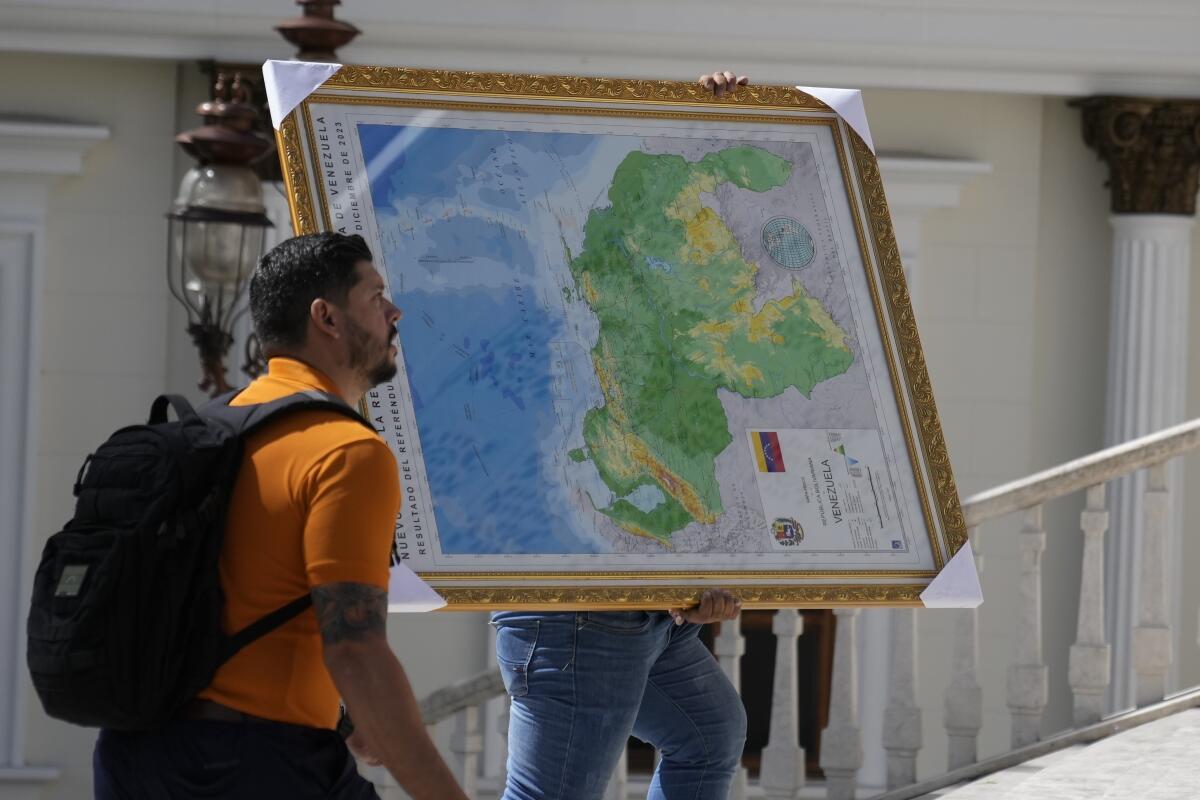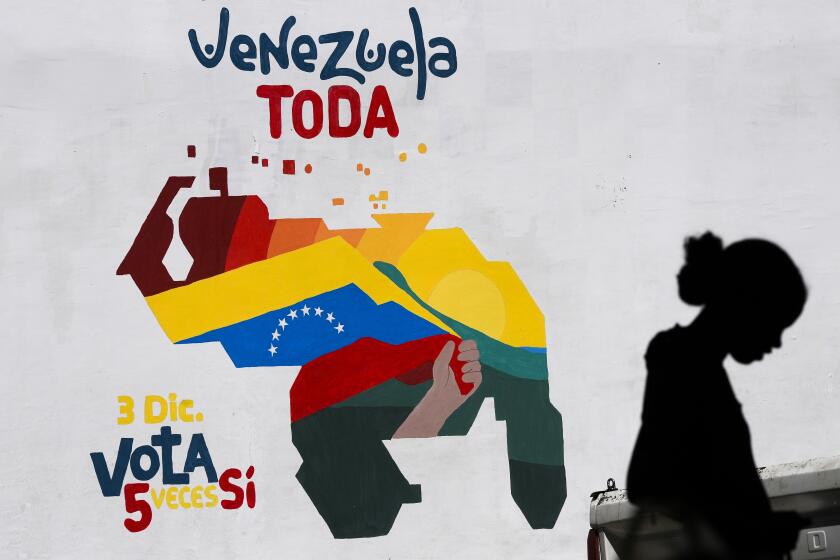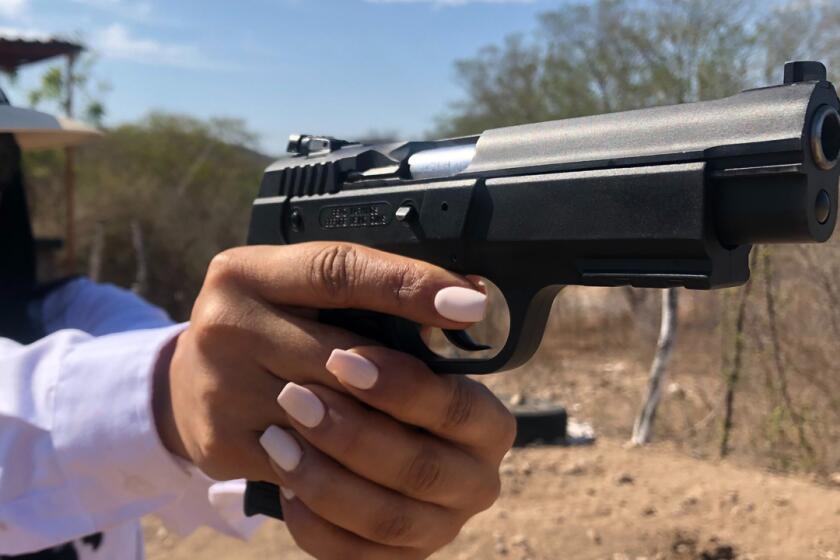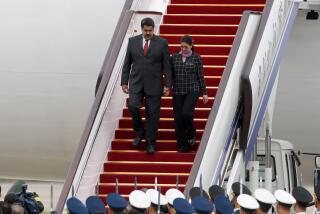Helicopter with senior Guyana military officials goes missing near Venezuela border

- Share via
GEORGETOWN, Guyana — A military helicopter carrying seven people has vanished near Guyana’s border with Venezuela, with authorities saying that there was bad weather in the area and stressing that there was no indication it may have been hit by hostile fire as tensions escalate between the countries.
Two crew members aboard the helicopter were taking five senior officers on an inspection of troops guarding a border area that Venezuela claims as its own, according to Guyanese army chief Brig. Gen. Omar Khan.
Venezuelan troops with heavy equipment and machinery have been massing on the border in recent weeks, leading to speculation of an imminent invasion.
Guyanese President Irfaan Ali told the Associated Press on Wednesday that he was taking all necessary steps to defend his country.
Khan told reporters late Wednesday that Guyana’s Defense Force lost contact with the brand-new Bell 412 EPI aircraft after it took off from the Olive Creek settlement in western Guyana following a refueling stop.
Asked whether the aircraft was shot out of the sky as it flew in a mountainous and heavily forested area, Khan said there were no indications that occurred.
“We do not have any information suggesting that there was any flight by Venezuelan aircraft in that area,” he said. “Speculation is not what I want to go into. Our priority is to save the lives of our officers and ranks.”
The U.N. top court, however, did not specifically prevent Venezuela from holding its planned referendum Sunday on the Essequibo region.
He said the U.S. government would help with the search Thursday.
The aircraft’s disappearance about 30 miles east of Venezuela’s border comes as tensions run high between Guyana and Venezuela over the Essequibo region, which is rich in minerals and sits near massive oil deposits. Venezuela claims the region as its own, insisting that it has been part of the country since Spanish rule.
Guyana has maintained that the border defined by international arbitrators in 1899 is the correct one.
On Sunday, Venezuelan President Nicolás Maduro held a referendum in which Venezuelans approved his claim of sovereignty over Essequibo. On Tuesday, Maduro said he would immediately grant operating licenses for exploration and exploitation in Essequibo and ordered the creation of local subsidiaries of Venezuelan public companies.
In this excerpt from her book ‘Narcas,’ veteran journalist Deborah Bonello uncovers some of the powerful women inside the macho world of Latin America’s brutal drug gangs.
Asked whether he has requested military assistance in the dispute with Venezuela, Ali said his government was reaching out to allies and regional partners, some of which Guyana has defense agreements with, for help in protecting Essequibo. The region makes up two-thirds of the country.
“We take this threat very seriously, and we have initiated a number of precautionary measures to ensure the peace and stability of this region,” Ali said in the brief phone interview.
“Should Venezuela proceed to act in this reckless and adventurous manner, the region will have to respond,” he said. “And thatis what we’re building.We’re building a regional response.”
Venezuela is home to the world’s largest proven oil reserves, but years of mismanagement and U.S. economic sanctions against Maduro’s government have hurt the Venezuelan state-owned oil company PDVSA and its subsidiaries.
Former Peruvian President Alberto Fujimori, 85, is released on humanitarian grounds despite a request from a human rights court for a delay.
Maduro announced the creation of a Comprehensive Defense Operational Zone for the disputed territory. It would be similar to special military commands that operate in certain regions of Venezuela.
“The announcements by Venezuela are in full defiance of international law,” Ali said. “And any country that so openly defies important international bodies should be of concern not only for Guyana but for all of the world.”
Venezuela called on Guyana to resume dialogue and leave aside its “erratic, threatening and risky conduct.”
The diplomatic fight over the Essequibo region has flared over the years but intensified in 2015 after ExxonMobil announced that it had found vast amounts of oil off its coast.
More to Read
Sign up for Essential California
The most important California stories and recommendations in your inbox every morning.
You may occasionally receive promotional content from the Los Angeles Times.












